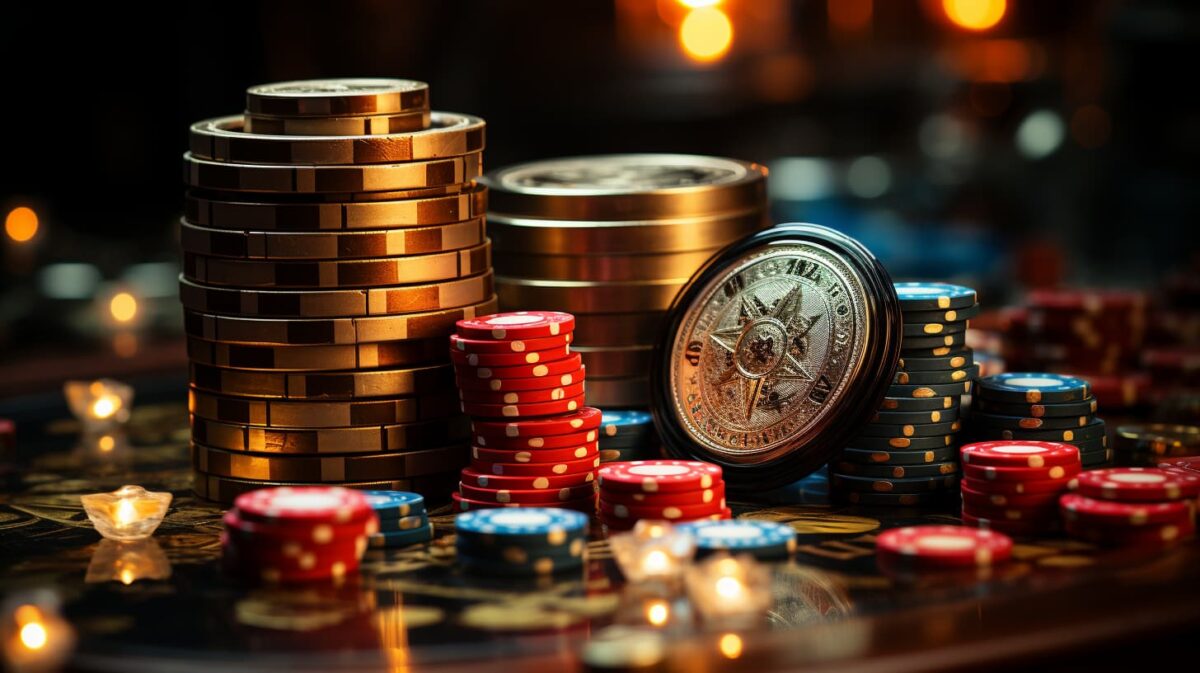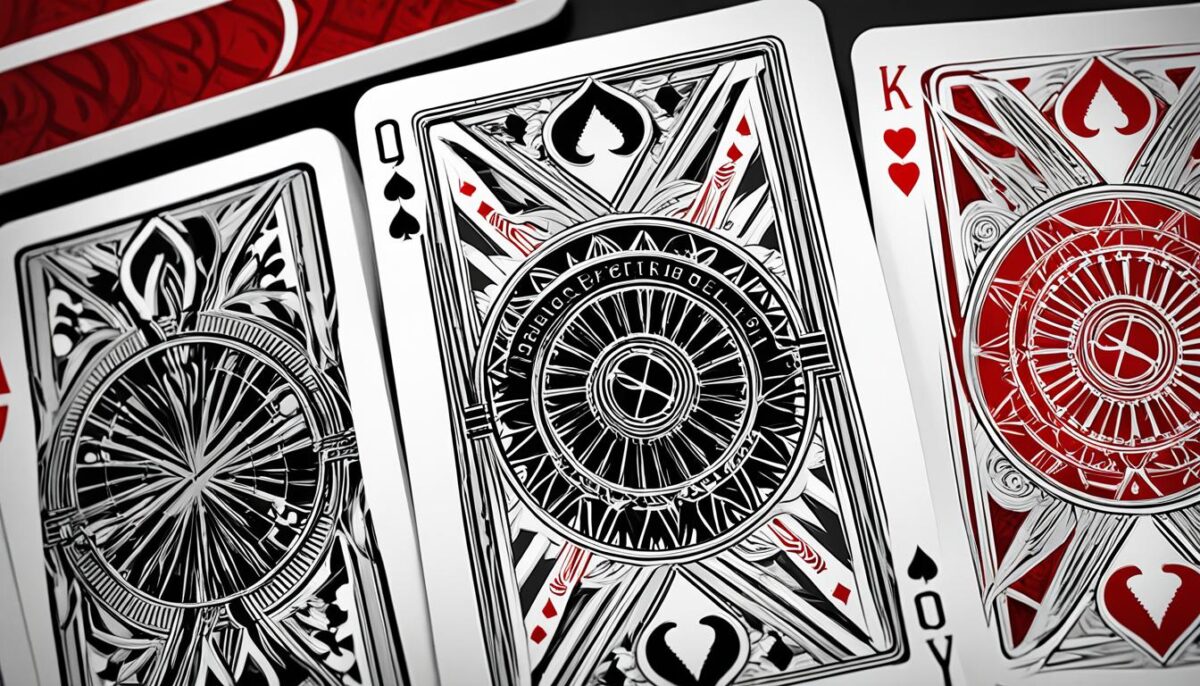Roulette has an extremely addictive nature because it is a game of betting. Every gambling veteran can tell you that roulette is also a practical game, filled with many rituals and superstitions that players believe help them overcome the odds in their favour. These superstitions have come from the history of roulette and are based on number-based beliefs to colour-dependent practices, but they all point to the same thing – human nature and the complete control over one’s destiny that humans are unlikely to have. This paper investigates the transformation of such beliefs, what activities players engage in, and how these activities influence strategies and emotions when playing at the table. This aims to elucidate the influence of emotions – beliefs related to the outcomes of actions – on how one plays with the roulette wheel. Well if you want to play online roulette right now, there is a reliable site called ROCNZ, there are loads of roulette tips there from reliable sources
Common Superstitions in Roulette
- Lucky Numbers: Many players adhere to specific numbers they consider lucky. For instance, in Chinese culture, numbers like eight are seen as auspicious due to their phonetic resemblance to words associated with prosperity
Conversely, the number thirteen is often viewed as unlucky in Western cultures.
- Sleeping Numbers: Some gamblers believe that numbers which haven’t appeared recently are “due” for a win. This notion stems from a misunderstanding of probability and the gambler’s fallacy, where players think past outcomes affect future results
- Personal Rituals: Players often engage in personal rituals before betting. Common practices include wearing lucky clothing, carrying charms (like a rabbit’s foot), or performing specific actions such as crossing fingers or blowing on chips
These rituals provide psychological comfort and enhance confidence, even if they don’t influence the game’s outcome.
- Entering through Different Doors: Some gamblers avoid entering casinos through the main entrance, fearing that they might encounter bad luck from those leaving after losses. Instead, they may choose side entrances to sidestep this perceived risk
- Avoiding Mirrors: Sitting at a table with mirrors is considered unlucky by some players, as mirrors are thought to reflect negative energy and amplify bad luck
- Wearing Red: In various cultures, red symbolizes good fortune and prosperity. Many gamblers wear red clothing or accessories when playing to attract luck
Psychological Impact of Superstitions
The reliance on superstitions can be attributed to the psychological need for control in uncertain situations. Engaging in rituals can help mitigate anxiety and enhance focus during gameplay
Research indicates that such beliefs may boost confidence levels among gamblers, potentially influencing their decision-making processes at the table
History and Evolution of Superstitions and Rituals in Roulette
The history and evolution of superstitions and rituals in roulette are intricately connected to the broader context of gambling culture, demonstrating how beliefs and practices have influenced the gaming environment.
From ancient civilizations that attributed luck to specific numbers and colors to contemporary rituals observed by players at the casino table, these practices underscore the psychological factors that motivate rituals associated with luck.
As roulette has evolved over the centuries, so too have the superstitions linked to it, shaped by folklore, regional beliefs, and the universal pursuit of fortune and favorable outcomes in games of chance.
This analysis highlights the complex relationship between belief systems and player behavior, significantly impacting betting strategies and decisions at the roulette wheel.
Common Superstitions in Roulette
Common superstitions in roulette represent a compelling interplay of beliefs that reflect the psychology of gamblers attempting to influence their luck and outcomes during gameplay.
Players frequently resort to specific numbers, colors such as red and black, and personal rituals to establish a sense of control over the game’s inherent randomness.
These superstitions, which may include beliefs in lucky charms like a four-leaf clover or the avoidance of unlucky numbers, can significantly impact player behavior at the casino table.
Analyzing these superstitions provides valuable insights into the emotional and psychological factors that shape betting strategies in roulette, as they are deeply intertwined with cultural beliefs and individual experiences.
Number-based Superstitions and Their Origins
Number-based superstitions in roulette frequently emerge from a confluence of folklore, psychological triggers, and mathematical interpretations of chance, attributing significant importance to particular lucky numbers believed to affect outcomes.
These phenomena provide an intriguing opportunity to examine how deeply held beliefs regarding numbers—such as the associated risks of the number 13 or the traditionally favorable 7—impact player decision-making. It is particularly noteworthy how cognitive biases, including confirmation bias, lead individuals to seek evidence that corroborates their beliefs while neglecting contradictory data.
Additionally, the influence of social circles, where shared anecdotes and experiences shape perceptions of certain numbers, further complicates this narrative. Such dynamics indicate that players are often influenced not solely by objective odds, but also by subjective experiences connected to their favored numbers, resulting in distinctive betting patterns and heightened emotional responses during gameplay.
Color-based Superstitions and Their Origins
Color-based superstitions in roulette are integral to the gaming experience, as players often rely on the psychological effects of colors such as red and black to influence their fortunes at the betting table.
The association of red with luck and black with misfortune is frequently rooted in cultural beliefs and historical contexts that shape individual perceptions of color symbolism.
These associations not only enhance emotional investments in each spin of the wheel but also play a critical role in informing one’s gambling strategy. Players may be inclined to favor specific colors based on personal narratives, family traditions, or popular media representations.
Such influences can heighten the tension and excitement experienced during gameplay, as the colors themselves become elements of a broader narrative surrounding luck and chance.
Over time, these collective beliefs contribute to a cultural tapestry wherein various rituals and color preferences thrive, underscoring the notion that roulette is not merely a game of chance but also a deeply ingrained ritual for many enthusiasts.
Other Superstitions and Their Significance
Along with number and color-based beliefs, various superstitions in roulette significantly influence the gambling culture, often manifesting in the form of rituals, charms, and omens. Players may carry lucky amulets or engage in specific actions prior to placing their bets, perceiving these rituals as essential components of their strategy to influence fate and enhance their chances of winning.
The importance of these superstitions can be traced back to historical practices and regional folklore, enriching the understanding of how players navigate the complexities of chance and probability at the roulette table. Such practices reveal a rich tapestry of belief systems that intertwine with the emotional and psychological dimensions of gaming.
For example, in certain cultures, players believe that donning particular colors can attract fortune or that the presence of specific symbols can mitigate bad luck. These traditions not only underscore the individual motivations behind each wager but also highlight the collective wisdom that evolves over generations.
The impact of these rituals can be substantial; many players abstain from placing bets during specific ‘unlucky’ hours or when they perceive negative energy in their surroundings. By recognizing and embracing these superstitions, they cultivate a sense of community and shared experience, transforming an impersonal game of chance into a deeply personal ritual that enhances their enjoyment and engagement at the table.
Rituals in Roulette
Rituals in roulette are essential to the player experience, often encompassing a variety of practices aimed at enhancing luck or influencing outcomes during gameplay. These rituals can differ significantly among players and may involve actions such as tossing a lucky charm or reciting specific phrases while placing bets at the roulette table.
The psychology underlying these rituals is fundamentally rooted in the human desire to exert control over chance and probability, as players seek to employ strategies that align with their personal beliefs and superstitions regarding luck and fortune.
This examination of rituals in roulette not only underscores their social significance but also illuminates the broader psychological mechanisms operating within the gambling environment.
Popular Rituals and Their Purpose
Popular rituals among roulette players serve distinct purposes, often aimed at invoking good fortune and enhancing the overall gambling experience.
These rituals can range from simple actions, such as tapping the table prior to placing a bet, to more elaborate practices, including the formation of specific betting patterns that players consider ‘lucky.’ Some individuals may opt to spin the wheel in a particular direction or recite incantations while selecting their numbers. Such behaviors reflect a fundamental desire to exert control over chance, providing a sense of comfort amid the inherent unpredictability of the game.
These rituals not only foster a deeper connection to the roulette experience but also enhance camaraderie among players who share similar beliefs, ultimately influencing their gaming strategies and interactions with others at the table.
Controversial Rituals and Their Impact
Controversial rituals in roulette frequently generate discussions among players and experts, as they navigate the distinction between benign superstitions and potentially detrimental gambling behaviors.
These rituals can take various forms, ranging from specific betting patterns to the use of lucky charms, thereby creating a complex array of behaviors that reflect both personal and cultural beliefs.
Analyzing the tendencies of players toward particular habits uncovers underlying psychological factors influencing their gameplay, such as anxiety and the desire for control in a game fundamentally dictated by chance.
Such practices not only perpetuate individual myths regarding luck but also contribute to a shared culture within gambling communities, influencing how strategies are viewed and implemented.
Therefore, it is crucial to understand the implications of these behaviors on player mentality to promote responsible gaming environments.
How Superstitions and Rituals Affect Roulette Players
The impact of superstitions and rituals on roulette players is significant, affecting their psychology, betting strategies, and overall gaming experience.
Players frequently depend on these beliefs to manage the inherent uncertainty associated with roulette, as superstitions offer a semblance of control and predictability within a game dictated by chance.
This reliance can distort perceptions of outcomes, with players attributing their wins or losses to their rituals rather than the actual probabilities involved.
Understanding these influences is essential for both players and casino operators, as it highlights the complex relationship between belief systems and gambling behavior.
Psychological Effects and Strategies for Overcoming Them
The psychological effects of superstitions and rituals in roulette can be substantial, often leading to cognitive biases and maladaptive betting strategies that may influence long-term player behavior. Many players may succumb to magical thinking, convinced that their rituals can directly impact outcomes, which may potentially exacerbate gambling addiction or increase risk-taking behavior.
To counter these effects, players should consider adopting strategies such as critical thinking, emphasizing the mathematical probabilities of outcomes instead of emotional attachments to superstitions. This shift in perspective can help mitigate cognitive biases and promote healthier gambling practices that prioritize risk management and responsible gaming.
Such awareness enables individuals to break free from the often-destructive patterns that can develop over time. Understanding how social influences and peer behaviors can reinforce superstitions is essential for a player’s mental growth. Engaging in self-reflection and maintaining a disciplined approach further enhance the gaming experience.
By setting limits and intentionally tracking wins and losses, players cultivate a more objective viewpoint.
Emphasizing knowledge over beliefs may not only reduce anxiety but also foster a clearer understanding of the game’s inherent randomness. Ultimately, equipping themselves with evidence-based strategies encourages a more rational mindset, allowing for enjoyment without the burden of irrational fears.



